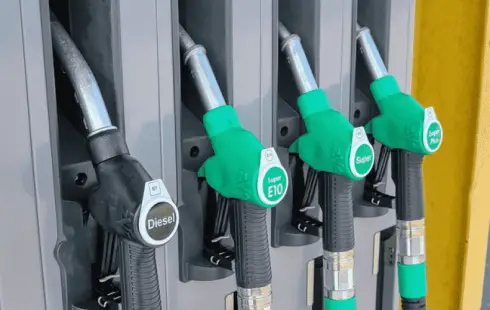
Crypto Investment Entry and Exit Strategies of Institutional Investors
Section: Business
 The price of diesel in Germany continues to rise. Although the price of oil has recently declined due to recession concerns, fuel prices continued to rise on Monday and Tuesday.In a weekly comparison, the average price for a liter of diesel rose by 13.2 cents to 2.144 euros, as the automobile club ADAC announced on Wednesday after its regular evaluation of the prices of 14,000 gas stations. Gasoline increased accordingly by approximately 7.8 cent to 1,956 euro per liter.
The price of diesel in Germany continues to rise. Although the price of oil has recently declined due to recession concerns, fuel prices continued to rise on Monday and Tuesday.In a weekly comparison, the average price for a liter of diesel rose by 13.2 cents to 2.144 euros, as the automobile club ADAC announced on Wednesday after its regular evaluation of the prices of 14,000 gas stations. Gasoline increased accordingly by approximately 7.8 cent to 1,956 euro per liter.
The automobile club criticized the development: "Even if special effects such as a strong demand for heating oil and high demand in industry as a gas substitute must be taken into account, the jump in diesel at this level is not justified." This is because the oil price per barrel (barrel at 159 liters) of North Sea Brent has only risen by two dollars in the same period, he said.
"Two weeks ago, we were still moving in triple steps towards normalization for gasoline, now the situation has turned around," said ADAC gasoline expert Jürgen Albrecht. "Since the OPEC decision last week, the price of diesel in particular has risen disproportionately.
The oil countries of the OPEC plus group had already cut oil production from the beginning of October, albeit only slightly by 100,000 barrels per day. Last week, they decided to cut production by two million barrels per day in November. This briefly drove the oil price up to almost 100 dollars a barrel, before recession worries caused it to fall again to a good 94 dollars on Wednesday.
Oil associations had recently reported that many companies that normally use natural gas in their production, but could also use heating oil, were now buying heating oil in stock to hedge their bets. This was additionally driving up the prices for heating oil and the diesel fuel associated with its production. However, the German Federal Cartel Office has also announced its intention to take a closer look at the gasoline market.
The petroleum industry association en2x also did not want to rule out connections to the bottlenecks at service stations in France: "The prices for refinery products, which in Europe are primarily reflected in the Rotterdam price quotations, result from supply and demand," said a spokesman: "If, as is currently the case in France, refinery capacities are reduced and supply is reduced, this can therefore also lead to rising service station prices in this country." In France, many gas stations had recently run dry; there were only isolated reports of such cases in Germany.
Most recently, fuel prices had risen significantly with the end of the fuel discount on September 1.
The ADAC advises comparing prices at different gas stations. Those who can should also fill up in the evening. According to the current study, consumers can save around twelve cents this way compared to the morning hours. "Price-conscious refueling behavior also promotes competition and can therefore also contribute to a price reduction," the automobile club explained.
Image by Alexander Fox

Section: Business

Section: Arts

Section: Arts

Section: Business

Section: Business

Section: Arts

Section: Health

Section: Arts

Section: News

Section: News
Health Insurance in Germany is compulsory and sometimes complicated, not to mention expensive. As an expat, you are required to navigate this landscape within weeks of arriving, so check our FAQ on PKV. For our guide on resources and access to agents who can give you a competitive quote, try our PKV Cost comparison tool.
Germany is famous for its medical expertise and extensive number of hospitals and clinics. See this comprehensive directory of hospitals and clinics across the country, complete with links to their websites, addresses, contact info, and specializations/services.
One of the most beautiful squares transforms into a summer stage every year for two days. The Gärtnerplatz Open-Air features a free music and cultural program across three stages, as well as street food from local vendors. On Saturday, the main stage at Gärtnerplatz offers something for everyone,...



No comments yet. Be the first to comment!